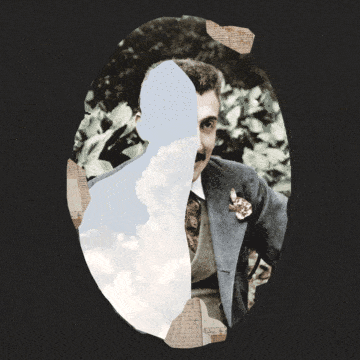Oliver Muday in The Atlantic:
 One morning a few weeks ago, I sent my friend a Proust text. It was a photo of a page from Swann’s Way, and it took several attempts for me to capture the near-page-length sentence in its entirety. Next to me, my 2-year-old daughter slowly guided a spoonful of oatmeal into her mouth, noticing my struggle. “Daddy, what are you doing?” she asked. The answer: being insufferable. My friend’s response shortly thereafter confirmed this: “It’s too early for me to follow this sentence.”
One morning a few weeks ago, I sent my friend a Proust text. It was a photo of a page from Swann’s Way, and it took several attempts for me to capture the near-page-length sentence in its entirety. Next to me, my 2-year-old daughter slowly guided a spoonful of oatmeal into her mouth, noticing my struggle. “Daddy, what are you doing?” she asked. The answer: being insufferable. My friend’s response shortly thereafter confirmed this: “It’s too early for me to follow this sentence.”
Proust’s work has many qualities that might recommend it for pandemic reading: the author’s concern with the protean nature of time, the transportive exploration of memory and the past, or simply the pleasure of immersing oneself in the richly detailed life of another. His novel cycle, In Search of Lost Time, also presents the attractive challenge of surmounting a massive text—multiple volumes, stretching between 3,000 and 4,000 pages, depending on the edition—and the subsequent entry into a rare and rather pretentious club of readers. All of it appealed; I wanted in. What I found was a novel so preoccupied with the minutiae of experience that I had no choice but to reappraise my own.
Before accepting that I was no different from everyone else sublimating their ambition into a “quar project,” my reading habits had changed naturally with the phases of the pandemic. Early in March, as New York City prepared for a shutdown, I felt a sense of adventure in ordering a stockpile of books along with black beans and toilet paper. My first batch included Thomas Bernhard’s Extinction and Penelope Fitzgerald’s The Beginning of Spring, works often cited for their distinctive styles of comedy (self-lacerating and wry, respectively). One night, the two novels happened to be stacked on top of each other beside my bed; I found myself haunted by the cryptic dispatch of their titles.
More here.
